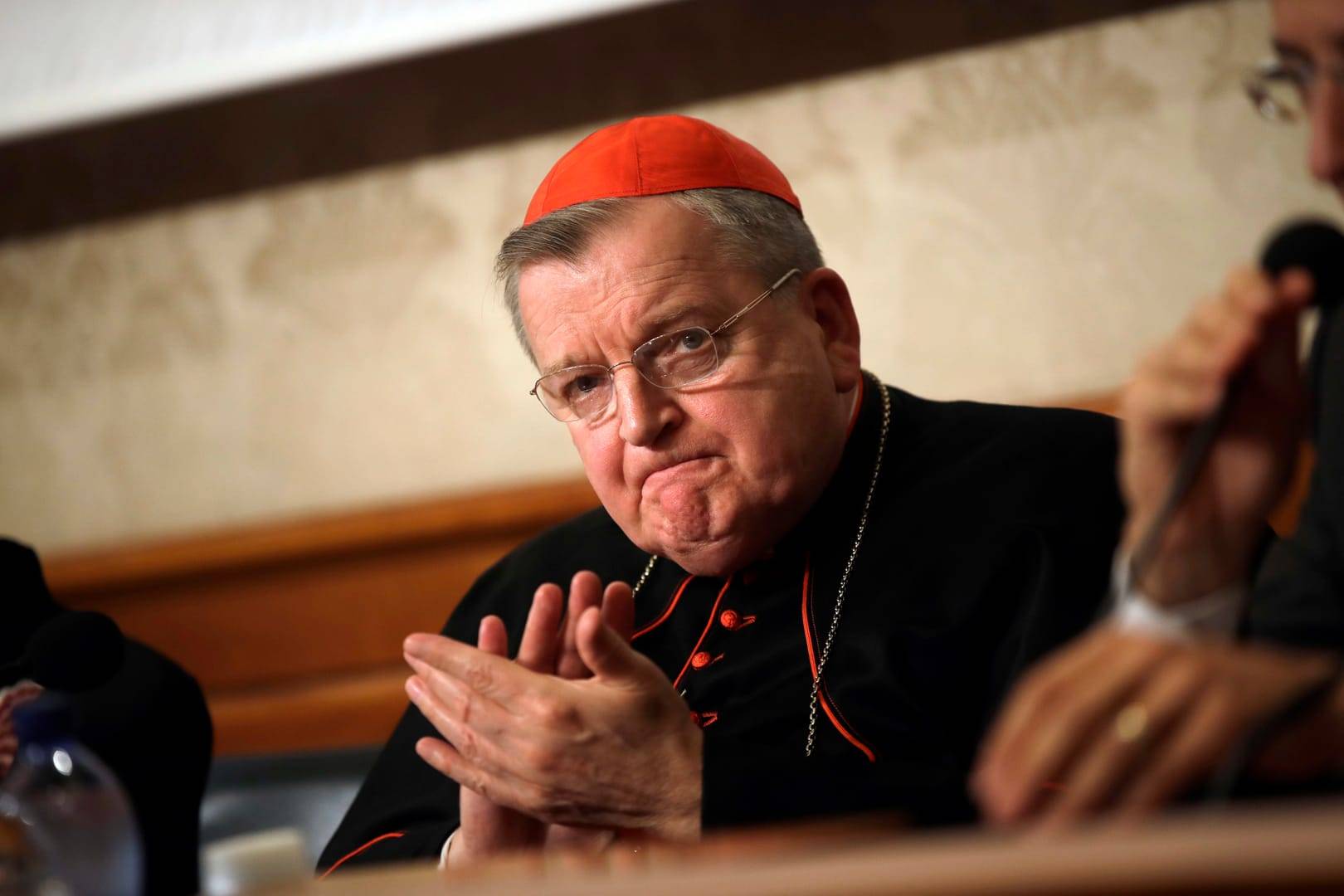[On Sunday, Oct. 9, Pope Francis announced a consistory on Nov. 19 for the creation of 17 new cardinals, including 13 under the age of 80 and therefore eligible to vote for the next pope. Crux is offering a series of profiles of the new cardinals.]
When 17 new cardinals were announced on Oct. 9, most were quickly defined as Pope Francis-style pastors. One choice, however, had an added bit of political subtext: Venezuela’s Baltazar Enrique Porras Cardozo, archbishop of Merida, and a strong voice in opposition to the Socialist government of Nicolas Maduro.
“This is a blessing not for me but for the country, which denotes the affection and love that Pope Francis has for us, because of the situation the country is going through, and this is a call for hope to overcome the crisis in our country,” Porras said to the local TV station Globovision.
His appointment to the College of Cardinals, which gives him the opportunity to elect — and, theoretically, to be elected as — an eventual new pope, Porras insisted, is a call for everyone in Venezuela to own up to the responsibility of working for understanding and overcoming violence.
“More than an accomplishment, it’s a responsibility, so that the light of Jesus and the Gospel becomes one that illuminates that needed fraternity and understanding among all Venezuelans,” he said.
Despite having some of the world’s largest oil reserves, in recent years the country has been in an economic, social and political downward spiral, with inflation expected to reach 1,500 percent next year.
Most of the nation’s 30 million inhabitants lack basic goods, such as bread or toilet paper, with hospital neonatal units using cardboard boxes as cribs, and children risking death for untreated knee scrapes due to a lack of medicines.
Porras, like the other two cardinals-elect from Latin America — Cardinal Sérgio da Rocha of Brazil, and Cardinal Carlos Aguiar of Mexico — is known to be close to Francis.
The Venezuelan prelate served at the Latin American Bishops’ Conference (CELAM) from 2007 to 2011, when the future pope was drafting a document adopted at Aparecida, Brazil, reflecting the results of the fifth regional assembly of bishops.
That document continues to be very important for Francis, one that he presents to every visiting Latin American head of state.
Today, Porras is the Archbishop of Merida, a key city in the Venezuelan Andes region, home of one of the oldest archives of Latin America, where traces of the Catholic Church from its arrival on the continent can be found. The prelate himself is a Church historian and has spent many hours perusing the endless files.
On the human level, Professor Jose Antonio Rivas Leone, of the University of Los Andes, where the prelate has taught, describes him as a man of many hats beyond a religious leader, including a writer, academic, journalist, philosopher, humanist, intellectual, sportsman and a good domino player.
Porras was defined to Crux as a man of great human qualities, sensible and of clear thought, always promoting what Francis has dubbed the “culture of encounter.”
According to several sources, at the grassroots level his nomination brings hope for new spaces of dialogue and reconciliation.
Porras is expected to be the Catholic point man in an eventual dialogue between the government of Maduro and the opposition, as he has the full support of the papal representative in the country, Archbishop Aldo Giordano.
It’s worth noting that Pope Francis’s right-hand man, Italian Cardinal Pietro Parolin, the Vatican’s secretary of state, was the papal nuncio in Venezuela before being summoned to Rome, so it’s not far-fetched to say Porras’s view on the country’s ongoing crisis has the pontiff’s seal of approval.
The opposition has officially requested the Vatican’s mediation in the dialogue process, but the national government has to do the same, and there’s no official confirmation of this having happened. On his way back from Georgia and Azerbaijan earlier in the month, Francis had said the Vatican was willing to participate, as long as the adequate conditions were present.
Soon after the pope announced the list of new cardinals, the Venezuelan Bishop’s Conference released a statement saying that Porras’s designation shows Francis’s “concern for our homeland, that has suffered for seventeen years a grave social, economic, political and cultural crisis” which affects all, “particularly the poor.”
Porras has been very critical of the current government and of Hugo Chavez, who began the “Bolivarian Revolution” in 1999. The cardinal-elect was accused of being at the backstage of an attempted coup in 2002, and five years later he compared the late president to Fidel Castro, Benito Mussolini and Adolf Hitler.
The Venezuelan cardinal-elect was ordained a priest in 1967, Pope John Paul II made him an auxiliary bishop in 1983 and in 1991 he was appointed archbishop of Merida. He was president of the Venezuelan bishops’ conference for two terms, from 1999 to 2006, and vice-president of CELAM from 2007 to 2011.
He’s also been a member of the Vatican’s Especial Council for America for the Synod of Bishops since 1997. Last year, he was also one of the papal appointees for the Synod of Bishops on the Family.
With Porras, Venezuela now has two cardinals, both of whom are under 80.















